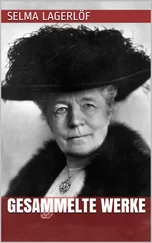Selma Lagerlöf - The Miracles of Antichrist
Здесь есть возможность читать онлайн «Selma Lagerlöf - The Miracles of Antichrist» — ознакомительный отрывок электронной книги совершенно бесплатно, а после прочтения отрывка купить полную версию. В некоторых случаях можно слушать аудио, скачать через торрент в формате fb2 и присутствует краткое содержание. Жанр: foreign_antique, foreign_prose, на английском языке. Описание произведения, (предисловие) а так же отзывы посетителей доступны на портале библиотеки ЛибКат.
- Название:The Miracles of Antichrist
- Автор:
- Жанр:
- Год:неизвестен
- ISBN:нет данных
- Рейтинг книги:4 / 5. Голосов: 1
-
Избранное:Добавить в избранное
- Отзывы:
-
Ваша оценка:
- 80
- 1
- 2
- 3
- 4
- 5
The Miracles of Antichrist: краткое содержание, описание и аннотация
Предлагаем к чтению аннотацию, описание, краткое содержание или предисловие (зависит от того, что написал сам автор книги «The Miracles of Antichrist»). Если вы не нашли необходимую информацию о книге — напишите в комментариях, мы постараемся отыскать её.
The Miracles of Antichrist — читать онлайн ознакомительный отрывок
Ниже представлен текст книги, разбитый по страницам. Система сохранения места последней прочитанной страницы, позволяет с удобством читать онлайн бесплатно книгу «The Miracles of Antichrist», без необходимости каждый раз заново искать на чём Вы остановились. Поставьте закладку, и сможете в любой момент перейти на страницу, на которой закончили чтение.
Интервал:
Закладка:
While Don Matteo was speaking, he saw how the signorina’s face grew stiff and white. He was almost afraid to go on. He feared that she was going to faint.
It was only with the greatest effort that she was able to answer him. The words would not pass her lips. It seemed as if they were too loathsome to utter. She quite understood, she said, that Don Ferrante would like to know why she had refused his proposal. She was infinitely touched and grateful on account of it, but she could not be his wife. She could not marry, for she brought dishonor and disgrace with her as a marriage portion.
“If you marry an Alagona, dear signorina,” said Don Matteo, “you need not fear that any one will ask of what family you are. It is an honorable old name. Don Ferrante and his sister, Donna Elisa, are considered the first people in Diamante, although they have lost all the family riches, and have to keep a shop. Don Ferrante knows well enough that the glory of the old name would not be tarnished by a marriage with you. Have no scruples for that, signorina, if otherwise you may be willing to marry Don Ferrante.”
But Signorina Palmeri repeated what she had said. Don Ferrante should not marry the daughter of a convict. She sat pale and despairing, as if wishing to practise saying those terrible words. She said that she did not wish to enter a family which would despise her. She succeeded in saying it in a hard, cold voice, without emotion.
But the more she said, the greater became Don Matteo’s desire to help her. He felt as if he had met a queen who had been torn from her throne. A burning desire came over him to set the crown again upon her head, and fasten the mantle about her shoulders.
Therefore Don Matteo asked her if her father were not soon coming out of prison, and he wondered what he would live on.
The signorina answered that he would live on her work.
Don Matteo asked her very seriously whether she had thought how her father, who had always been rich, could bear poverty.
Then she was silent. She tried to move her lips to answer, but could not utter a sound.
Don Matteo talked and talked. She looked more and more frightened, but she did not yield.
At last he knew not what to do. How could he save her from that haunted house, from poverty, and from the burden of dishonor that weighed her down? But then his eyes chanced to fall on the little image of the Madonna over the bed. So the young signorina was a believer.
The spirit of inspiration came to Don Matteo. He felt that God had sent him to save this poor woman. When he spoke again, there was a new ring in his voice. He understood that it was not he alone who spoke.
“My daughter,” he said, and rose, “you will marry Don Ferrante for your father’s sake! It is the Madonna’s will, my daughter.”
There was something impressive in Don Matteo’s manner. No one had ever seen him so before. The signorina trembled, as if a spirit voice had spoken to her, and she clasped her hands.
“Be a good and faithful wife to Don Ferrante,” said Don Matteo, “and the Madonna promises you through me that your father will have an old age free of care.”
Then the signorina saw that it was an inspiration which guided Don Matteo. It was God speaking through him. And she sank down on her knees, and bent her head. “I shall do what you command,” she said.
But when the priest, Don Matteo, came out of the house of the little Moor and went up the street, he suddenly took out his breviary and began to read. And although the wet clothes struck him on the cheek, and the little children and the orange-peels lay in wait for him, he only looked in his book. He needed to hear the great words of God.
For within that black house everything had seemed certain and sure, but when he came out into the sunshine he began to worry about the promise he had given in the name of the Madonna.
Don Matteo prayed and read, and read and prayed. Might the great God in heaven protect the woman, who had believed him and obeyed him as if he had been a prophet!
Don Matteo turned the corner into the Corso. He struck against donkeys on their way home, with travelling signorinas on their backs; he walked right into peasants coming home from their work, and he pushed against the old women spinning, and entangled their thread. At last he came to a little, dark shop.
It was a shop without a window which was at the corner of an old palace. The threshold was a foot high; the floor was of trampled earth; the door almost always stood open to let in the light. The counter was besieged by peasants and mule-drivers.
And behind the counter stood Don Ferrante. His beard grew in tufts; his face was in one wrinkle; his voice was hoarse with rage. The peasants demanded an immoderately high payment for the loads that they had driven up from Catania.
VII
THE BELLS OF SAN PASQUALE
The people of Diamante soon perceived that Don Ferrante’s wife, Donna Micaela, was nothing but a great child. She could never succeed in looking like a woman of the world, and she really was nothing but a child. And nothing else was to be expected, after the life she had led.
Of the world she had seen nothing but its theatres, museums, ball-rooms, promenades, and race courses; and all such are only play places. She had never been allowed to go alone on the street. She had never worked. No one had ever spoken seriously to her. She had not even been in love with any one.
After she had moved into the summer palace she forgot her cares as gayly and easily as a child would have done. And it appeared that she had the playful disposition of a child, and that she could transform and change everything about her.
The old dirty Saracen town Diamante seemed like a paradise to Donna Micaela. She said that she had not been at all surprised when Don Ferrante had spoken to her in the square, nor when he had proposed to her. It seemed quite natural to her that such things should happen in Diamante. She had seen instantly that Diamante was a town where rich men went and sought out poor, unfortunate signorinas to make them mistresses of their black lava palaces.
She also liked the summer-palace. The faded chintz, a hundred years old, that covered the furniture told her stories. And she found a deep meaning in all the love scenes between the shepherds and shepherdesses on the walls.
She had soon found out the secret of Don Ferrante. He was no ordinary shop-keeper in a side street. He was a man of ambition, who was collecting money in order to buy back the family estate on Etna and the palace in Catania and the castle on the mainland. And if he went in short jacket and pointed cap, like a peasant, it was in order the sooner to be able to appear as a grandee of Spain and prince of Sicily.
After they were married Don Ferrante always used every evening to put on a velvet coat, take his guitar under his arm, and place himself on the stairway to the gallery in the music-room in the summer-palace and sing canzoni. While he sang, Donna Micaela dreamed that she had been married to the noblest man in beautiful Sicily.
When Donna Micaela had been married a few months her father was released from prison and came to live at the summer palace with his daughter. He liked the life in Diamante and became friends with every one. He liked to talk to the bee-raisers and vineyard workers whom he met at the Café Europa, and he amused himself every day by riding about on the slopes of Etna to look for antiquities.
But he had by no means forgiven his daughter. He lived under her roof, but he treated her like a stranger, and never showed her affection. Donna Micaela let him go on and pretended not to notice it. She could not take his anger seriously any longer. That old man, whom she loved, believed that he would be able to go on hating her year after year! He would live near her, hear her speak, see her eyes, be encompassed by her love, and he could continue to hate her! Ah, he knew neither her nor himself. She used to sit and imagine how it would be when he must acknowledge that he was conquered; when he must come and show her that he loved her.
Читать дальшеИнтервал:
Закладка:
Похожие книги на «The Miracles of Antichrist»
Представляем Вашему вниманию похожие книги на «The Miracles of Antichrist» списком для выбора. Мы отобрали схожую по названию и смыслу литературу в надежде предоставить читателям больше вариантов отыскать новые, интересные, ещё непрочитанные произведения.
Обсуждение, отзывы о книге «The Miracles of Antichrist» и просто собственные мнения читателей. Оставьте ваши комментарии, напишите, что Вы думаете о произведении, его смысле или главных героях. Укажите что конкретно понравилось, а что нет, и почему Вы так считаете.












